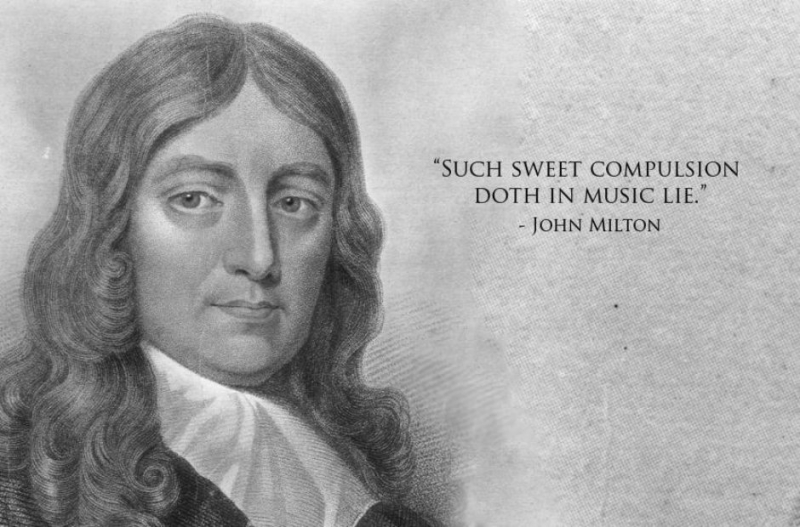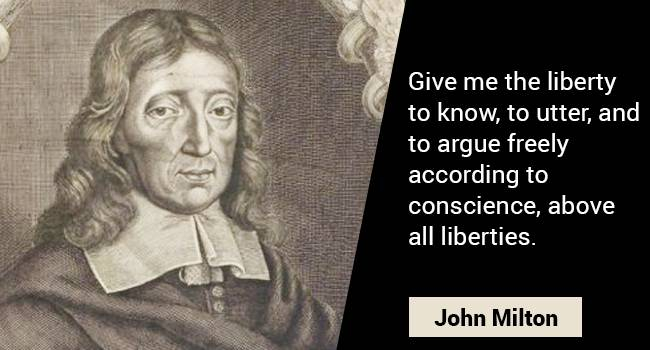John Milton was a big defender of Freedom of Speech
Areopagitica, one of John Milton's most well-known writings, was a staunch supporter of the right to free speech. This was a protest against pre-publication censorship that also served as a manifestation of press freedom. Milton's pursuit of freedom was also visible in his writing, which was highly experimental and frequently tested predetermined boundaries.
The earliest extensive essay on press freedom that is still read today is John Milton's Areopagitica, which was written in 1644. The decision by Parliament to resume the licensing of all books and pamphlets served as the impetus for the article. This happened not long after the notorious Star Chamber and other institutions of crown censorship had been dissolved as part of a broader legislative challenge to royal authority.
The leaders of Parliament were troubled by the efflorescence of radical religious ideas spreading through the streets during the interim period following the abolishment of crown licensing, when a civil war was raging, as well as by the efficacy of propaganda being spread at the time by forces loyal to the King. This resumption of centralized thought control disillusioned Milton and many of his Puritan brethren. He begged the Parliament to trust the English people with unapproved publications and pamphlets in order to demonstrate their greater faith in them.









